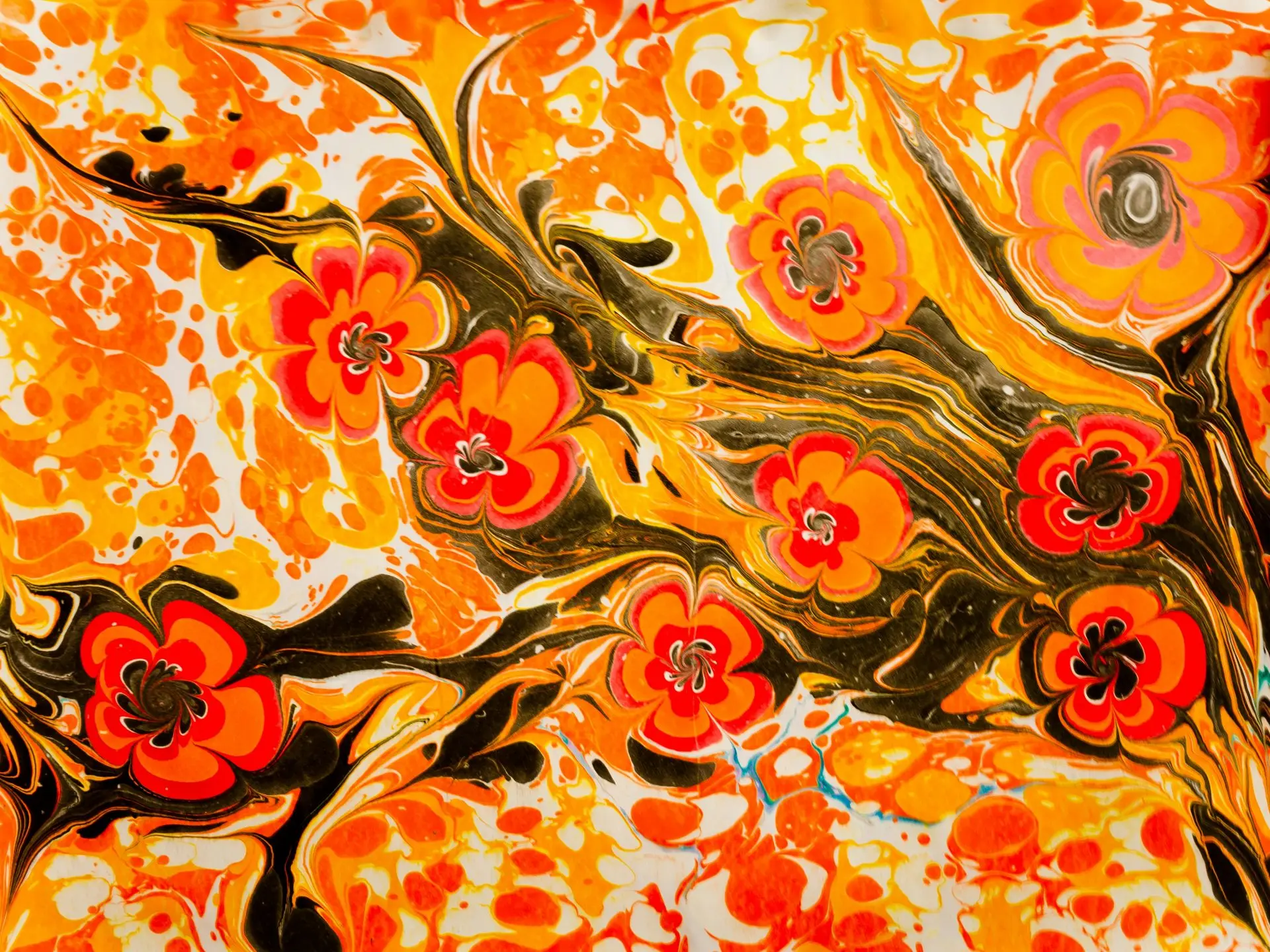Jyotish: Hindu Astrology and Its Significance

Looking for more amazing products? Check out our online store and explore our collection here! Happy shopping!
Before diving in, please note: This post is for informational purposes only. If you’d like to know more about how we approach topics, feel free to check out our friendly Disclaimer Page.
Hey there, amazing readers! 
We’re committed to delivering quality posts, and your support (even just sticking around despite the ads) means everything to us. So, bear with us, and thanks for helping us keep the good vibes rolling. Now, on to the fun stuff!
TRANSLATE BUTTON AT THE END OF THE ARTICLE
A Quick Overview
Jyotish, also known as Vedic astrology, is an ancient Indian form of astrology that has been practiced for thousands of years.
It is a system of astrology that is deeply rooted in Hindu culture and has been used to guide individuals in various aspects of life, including health, wealth, relationships, and spirituality.
The word "Jyotish" is derived from the Sanskrit word "jyoti," which means light or heavenly body, emphasizing the connection between the celestial bodies and human life.
In this article, we will explore the origins, principles, significance, and techniques of Jyotish astrology.
Introduction to Jyotish Astrology
Jyotish astrology is based on the belief that the positions of the planets and stars at the time of a person’s birth can influence their life and destiny.
It takes into consideration the twelve zodiac signs, nine planets, and twelve houses in a birth chart to make predictions and offer guidance.
Jyotish practitioners believe that the movements of these celestial bodies can impact a person’s personality, behavior, and overall life path.
Origins of Hindu Astrology
Hindu astrology has its roots in the Vedas, the ancient scriptures of India.
It is believed to have been codified by the sage Parashara in his work known as the Brihat Parashara Hora Shastra.
This text laid the foundation for the principles and techniques of Jyotish astrology that are still followed today.
Over the centuries, Hindu astrology has evolved and incorporated various cultural and regional influences, but its core principles have remained intact.
Principles of Jyotish
Jyotish astrology is based on the concept of karma, the law of cause and effect.
It teaches that our actions in past lives determine our destiny in this life.
The birth chart, also known as the Janam Kundali, is a map of the heavens at the time of birth and serves as a blueprint for an individual’s life.
Jyotish practitioners analyze the positions of the planets in the birth chart to make predictions about various aspects of life, such as career, relationships, health, and wealth.
Role of Planets in Jyotish
In Jyotish astrology, each planet is associated with certain qualities and influences different aspects of life.
For example, the Sun represents vitality and leadership, while Venus is associated with love and relationships.
The positions of these planets in the birth chart can indicate strengths, weaknesses, and challenges that a person may face in different areas of life.
By studying the interactions between the planets, Jyotish practitioners can offer insights and guidance to help individuals navigate their paths.
Importance of Birth Charts
The birth chart is a fundamental tool in Jyotish astrology, as it provides a detailed snapshot of the planetary positions at the time of birth.
By analyzing the birth chart, an astrologer can understand an individual’s strengths, weaknesses, and potential challenges.
The birth chart also reveals important information about a person’s personality, inclinations, and karmic patterns.
Understanding these elements can help individuals make informed decisions and take proactive steps to enhance their lives.
Predictions Based on Jyotish
Jyotish astrology is used to make predictions about various aspects of life, such as career, relationships, health, and finances.
By analyzing the positions of the planets in the birth chart and their interactions, astrologers can forecast upcoming events and trends.
These predictions are not set in stone but provide guidance on potential opportunities and challenges that may arise.
Individuals can use this information to plan ahead, make informed choices, and navigate life with greater awareness.
Remedies in Jyotish Astrology
In Jyotish astrology, remedies are prescribed to mitigate the negative effects of planetary influences and enhance positive energies.
These remedies can include wearing specific gemstones, performing rituals, reciting mantras, or engaging in acts of charity.
By following these remedies, individuals can balance their karmic energies and attract more favorable outcomes in life.
Remedies are tailored to each individual’s birth chart and are designed to address specific challenges or imbalances.
Jyotish and Karma
Karma is a central concept in Jyotish astrology, emphasizing the idea that our actions in past lives shape our present circumstances.
The birth chart reflects the karmic patterns and lessons that an individual needs to learn in this lifetime.
By understanding these karmic influences, individuals can gain insights into their life purpose, relationships, and challenges.
Jyotish astrology offers a framework for navigating karmic cycles and making conscious choices to create a more fulfilling and harmonious life.
Popular Jyotish Techniques
Jyotish astrology encompasses a wide range of techniques and systems for analyzing birth charts and making predictions.
Some popular techniques include:
Vimshottari Dasha: A system of planetary periods that indicate the major influences at different stages of life.
Nakshatras: Lunar mansions that provide insights into a person’s temperament and life path.
Yogas: Combinations of planetary placements that indicate specific influences and outcomes.
These techniques help Jyotish practitioners interpret birth charts and offer detailed insights into an individual’s life journey.
Jyotish vs Western Astrology
While both Jyotish and Western astrology use the positions of the planets to make predictions, they differ in their techniques, interpretations, and philosophical foundations.
Jyotish astrology is deeply rooted in Hindu philosophy and emphasizes karma, dharma, and spiritual growth.
Western astrology, on the other hand, focuses on psychological traits, personality analysis, and behavioral patterns.
Both systems have their strengths and can offer valuable insights, depending on the individual’s preferences and beliefs.
Consulting a Jyotish Astrologer
If you are considering consulting a Jyotish astrologer, it is important to find a reputable and experienced practitioner who can provide accurate and insightful readings.
A good Jyotish astrologer will take the time to analyze your birth chart, understand your concerns, and offer practical guidance and remedies.
It is advisable to ask for references, read reviews, and trust your intuition when choosing an astrologer.
Remember that Jyotish astrology is a tool for self-discovery and empowerment, so approach it with an open mind and a willingness to learn.
Benefits of Following Jyotish
Following Jyotish astrology can offer numerous benefits, including:
Self-awareness: By understanding your birth chart and karmic influences, you can gain insights into your strengths, weaknesses, and life purpose.
Guidance: Jyotish astrology can provide guidance on important life decisions, relationships, career choices, and personal growth.
Empowerment: By taking proactive steps to balance your karmic energies and follow remedies, you can empower yourself to create a more fulfilling and harmonious life.
Spiritual growth: Jyotish astrology offers a spiritual framework for understanding the interconnectedness of all beings and the eternal journey of the soul.
It can inspire reflection, contemplation, and growth on a deeper level.
In conclusion, Jyotish astrology is a profound and ancient system of astrology that offers invaluable insights into the mysteries of life, destiny, and karma.
By exploring the principles, techniques, and significance of Jyotish astrology, individuals can gain a deeper understanding of themselves, their relationships, and their life path.
Whether seeking guidance, empowerment, or spiritual growth, Jyotish astrology can be a transformative tool for those who are open to its wisdom and teachings.

The Enlightenment Journey is a remarkable collection of writings authored by a distinguished group of experts in the fields of spirituality, new age, and esoteric knowledge.
This anthology features a diverse assembly of well-experienced authors who bring their profound insights and credible perspectives to the forefront.
Each contributor possesses a wealth of knowledge and wisdom, making them authorities in their respective domains.
Together, they offer readers a transformative journey into the realms of spiritual growth, self-discovery, and esoteric enlightenment.
The Enlightenment Journey is a testament to the collective expertise of these luminaries, providing readers with a rich tapestry of ideas and information to illuminate their spiritual path.
Our Diverse Expertise
While our primary focus is on spirituality and esotericism, we are equally passionate about exploring a wide range of other topics and niches 

To ensure we provide the most accurate and valuable insights, we collaborate with trusted experts in their respective domains 
Our blog originally focused on spirituality and metaphysics, but we’ve since expanded to cover a wide range of niches. Don’t worry—we continue to publish a lot of articles on spirituality! Frequently visit our blog to explore our diverse content and stay tuned for more insightful reads.
Hey there, amazing reader! 
Check out our store here and take a peek at some of our featured products below! Thanks for being awesome!














